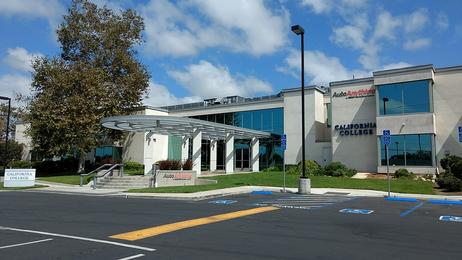Students interested in pursuing higher education are often counseled to look for an accredited college or university. However, accreditation cannot be taken for granted for many community colleges in California. Many two-year schools around the state are at risk of losing their accreditation. They must show why their accreditation should remain intact or lose it altogether. Why is accreditation essential, and what must colleges do to keep it? Many California schools are learning the answers to those questions firsthand.
The Importance of Accreditation
According to the Accrediting Council for Independent Colleges and Schools website, accreditation is a “voluntary activity initiated by the institution” that “emphasizes quality assurance and a commitment to continuous quality enhancement.” Accreditation can be crucial to an institution because it plays a factor in the following:
- Determining whether the school meets minimum quality standards
- Providing potential students with important information about a school
- Assisting in the determination of credit transfers between schools
- Showing prospective employers the value of the education received at the school
- Evaluating eligibility for tuition reimbursement programs offered by employers
- Enabling graduates to sit for certification examinations
- Creating goals for self-improvement of the institution
- Providing self-assessment for the oversight functions required by the state
- Offering a basis for determining federal student assistance
In many of these factors, accreditation makes all the difference in the quality of the degree a student earns and where he can take his studies after graduation. Accreditation is typically judged according to established standards and may be granted for a variable term ranging from three to eight years.
Why California Schools are Struggling with Accreditation
While none of the California schools listed in this report have lost their accreditation, some are in danger of doing so if they can’t make the required improvements within a set time frame. Cuesta College in San Luis Obispo is one of the schools that recently received a warning from the Accrediting Commission for Community and Junior Colleges. According to Cal Coast News, the commission warned that this school must “show cause” why it should remain an accredited institution.
Based on the initial warning, the accreditation threat has little to do with the quality of education this California school provides. Instead, the problems appear to be related to the school's governance. Sanctions are primarily focused on deficiencies in how the college is administered. Six of the nine recommendations first provided by the commission in 2009 have been resolved through the assistance of the Cuesta faculty. The last three recommendations are awaiting action by the Cuesta Board of Trustees.
New Times reports that the college has hired Eva Conrad of the College Brain Trust to help resolve its accreditation issues. Conrad served as president of Moorpark College from 2002 to 2008 and as a consultant to two other California schools when their accreditations were in jeopardy last year. Conrad will now help Cuesta address the concerns raised by the accreditation commission, including technology resources, financial planning and stability, and planning and assessment.
Two Valley Schools in Accreditation Trouble
Leadership also appears to be the primary issue in accreditation problems for two Valley schools. According to a report in the Fresno Bee, both Fresno City and Reedley College have received warnings from the Accrediting Commission for Community and Junior Colleges, which cite stalled planning efforts and lack of clear leadership as some of the reasons for the warnings. Some of the school faculty members blame State Center Community College District officials for at least some of the leadership woes facing the schools.
“As far as we can tell, the district is just doing their thing and not talking to anyone else about it,” Wendell Stephenson, a City College instructor, told the Fresno Bee.
However, district officials said plenty of progress has been made since Chancellor Deborah Blue took office in 2010. The district spokesman, Teresa Patterson, told the Bee, “There is still more work to be done, and we fully intend to complete the work and become a stronger district as a result.”
Shasta College Needs Education Plan to Save Accreditation
The lack of a central education plan is the crux that resulted in an accreditation warning for Shasta College. The accreditation commission has placed the school on probation, citing four items that must be addressed to keep their accreditation intact, according to a report at Redding.com. Probation signifies an intermediate warning level, which comes before the “show cause” warning that was issued to other colleges.
“When I looked at the report, three of the four [complaints] said the same thing: integrated planning, integrated planning, integrated planning,” Peggy Moore, interim vice president of Academic and Student Affairs, told Redding.com. “We can fix that,” Moore added.
Despite the many warnings issued to California schools recently, two colleges retained their bragging rights in the accreditation field. According to Black Voice News, the commission recently notified two schools in the San Bernardino Community College District that their accreditation will remain intact. Both Crafton Hills College and San Bernardino Valley College will prepare full reports and wait for visits by the accreditation teams in 2014.
“We want the community to know how proud we are of our colleges,” Carleton W. Lockwood, Jr., president of the Board of Trustees, told Black Voice News. “Maintaining excellence in this challenging economic environment is our continuing goal.”
Accreditation may have been taken for granted in years past, but California community colleges are especially now on red alert to maintain their status as a leading institution of education.
Questions? Contact us on Facebook. @communitycollegereview














